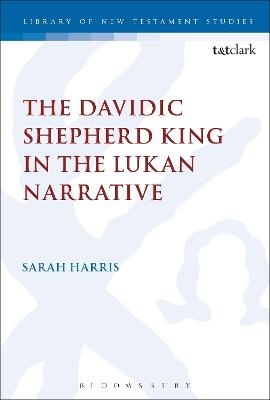The Library of New Testament Studies
1 total work
In Luke-Acts, Jesus can be seen to take on the attributes of the Davidic shepherd king, a representation successfully conveyed through specific narrative devices. The presence of the shepherds in the birth narrative can be understood as an indication of this understanding of Jesus. Sarah Harris analyses the multiple ways scholars have viewed the shepherds as characters in the narrative, and uses this as an example of how the theme of Jesus' shepherd nature is interwoven into the narrative as a whole.
From the starting point of Jesus' human life, Harris moves to later events portrayed in Jesus' ministry in which he is seen to enact his message as God's faithful Davidic shepherd, in particular, the parable of the Lost Sheep and the Zacchaeus pericope (19:1-10). Harris uses this latter encounter to underline that Jesus may be hailed as a King by the crowds as he enters Jerusalem, but he is not simply a king. He is God's Davidic Shepherd King, as prophesied in Micah 5 and Ezekiel 34, who brings the gospel of peace and salvation to the earth.
From the starting point of Jesus' human life, Harris moves to later events portrayed in Jesus' ministry in which he is seen to enact his message as God's faithful Davidic shepherd, in particular, the parable of the Lost Sheep and the Zacchaeus pericope (19:1-10). Harris uses this latter encounter to underline that Jesus may be hailed as a King by the crowds as he enters Jerusalem, but he is not simply a king. He is God's Davidic Shepherd King, as prophesied in Micah 5 and Ezekiel 34, who brings the gospel of peace and salvation to the earth.
